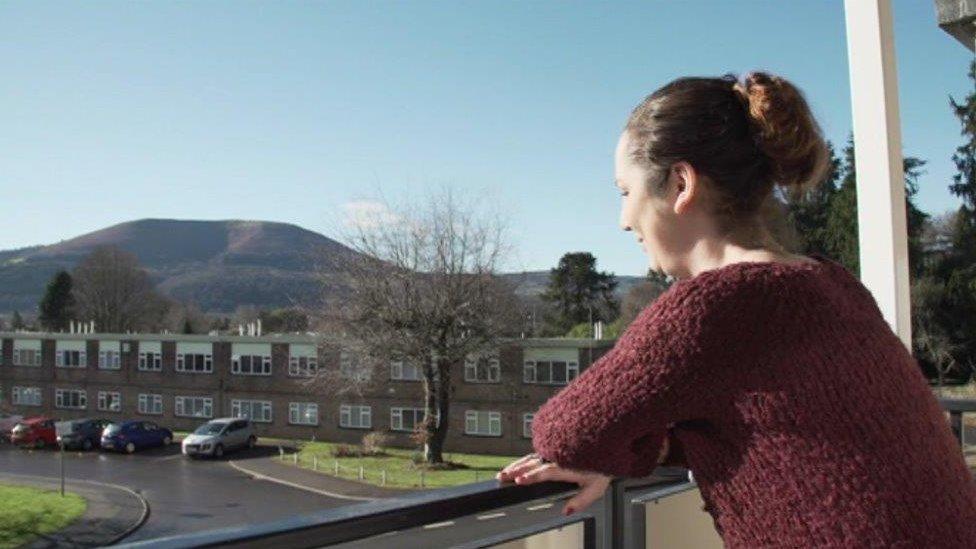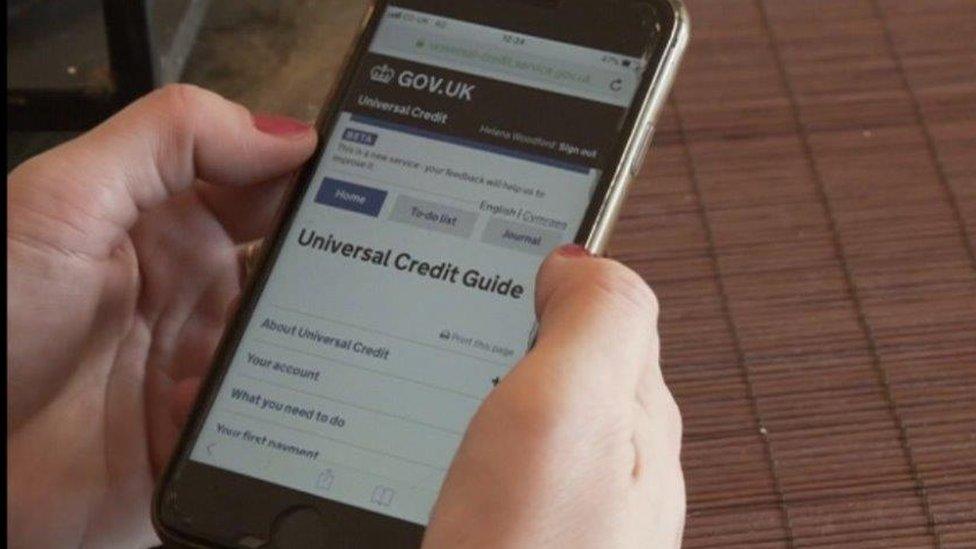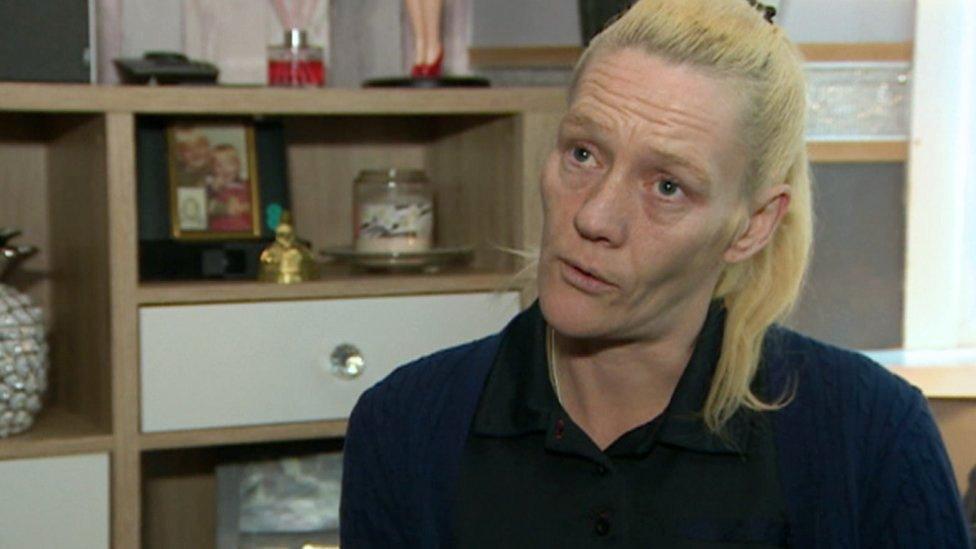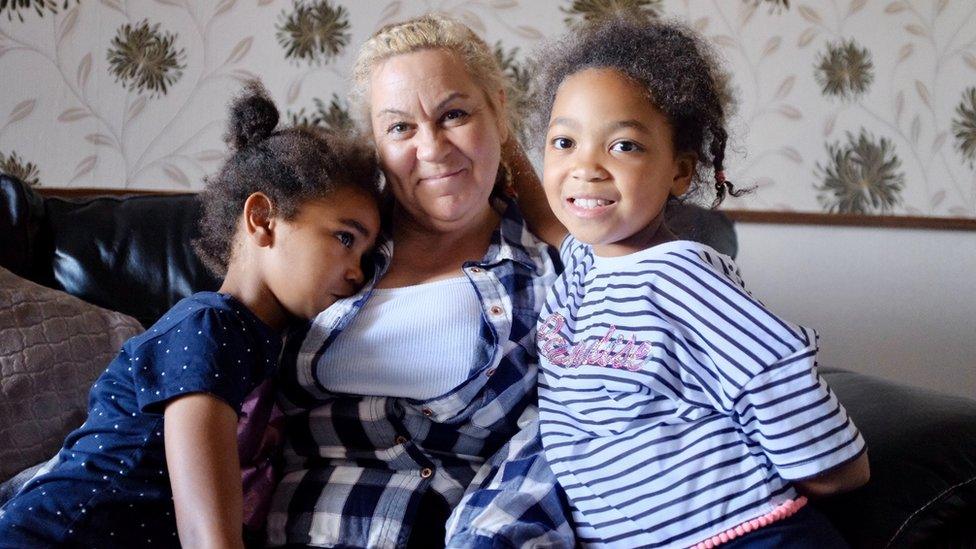Universal credit 'hits people with poor mental health'
- Published
'Universal credit worsened my mental health problems'
A woman who claimed universal credit after leaving her job because of poor mental health was left with no income for more than two months and had to move away from her family and friends.
Thirty-year-old graduate Helena Woodford said it led to a further deterioration in her depression.
Charity Mind Cymru said universal credit has had a detrimental effect on thousands with poor mental health.
The UK government said universal credit was working for the vast majority.
The latest figures available from May 2018 showed there were 63,000 people in Wales with mental health problems who were still claiming the disability benefit "employment and support allowance", all of whom will eventually be moved to universal credit.
By December 2018, there were 76,072 people in total already on universal credit in Wales, but the exact number claiming because of poor mental health is unknown.
Mind Cymru said thousands have been affected by the changes to the welfare system and claimed many were left without any money.

Helena Woodford had to move to Abergavenny, 23 miles away from her home area
Ms Woodford was signed off work on sick leave, and then had to leave her bar manager job following a relationship breakdown which exacerbated her existing depression and resulted in anxiety.
"I was used to having an income... I was expecting [claiming universal credit] to be quite smooth, quite quick but that wasn't the reality."
"I think it took about eight to 10 weeks before I got a first payment. I got into rent arrears massively and my landlady wouldn't accept universal credit so she served me with [an eviction notice].
"Not only did I have no money, I was then told I had three months to find somewhere to live which added to the stress massively."
Debt problems
She had to move away from her friends and family in Chepstow to a flat 23 miles (37km) away in Abergavenny, as she could not afford to live locally.
"I'm sure the system must help some people, but it hasn't overly helped me. I want to be out there working, but I'm getting in debt because the system isn't there to support me," she said.
"Debts are a massive problem on my mental health. I feel claustrophobic, trapped and stressed.
"Food banks are a new thing, it's tough on your self-esteem and you feel like you're begging. I don't want to stay like this, I want to be independent."
Mind Cymru said thousands of people were potentially at risk of losing their income unless issues with the transfer from employment and support allowance to universal credit, known as managed migration, are addressed.

Mind Cymru wants more support for claimants, including those who do not have internet access
Sara Moseley, the charity's director, described the situation as "urgent".
She said the process was too complicated and there was little support for people who did not understand it or could not access it online. She called for more face-to-face support, and for mental health needs to be taken into account.
Ms Moseley added that payments needed to be made more quickly as long waits were causing problems for claimants.
"If people are living pretty hand to mouth anyway, to wait to pay rent, to pay for food, to pay bills - that can just completely throw you out and mean that your whole life is disrupted."
A spokesman for the Department of Work and Pensions said universal credit was a "force for good".
"It's working for the vast majority of people. Work coaches receive training to support customers with mental health conditions and help them move into work."
- Published13 May 2024

- Published6 February 2019

- Published12 November 2018
